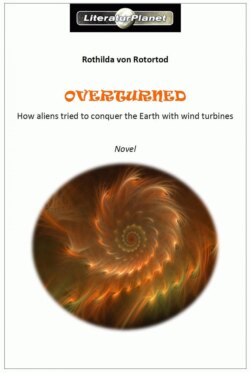Читать книгу Overturned - Rothilda von Rotortod - Страница 7
На сайте Литреса книга снята с продажи.
The Earthling's brain
ОглавлениеThe others still looked at him skeptically. "And what kind of catastrophe could this be?" a commissioner sitting opposite him asked.
"Well, I was thinking of an accident in a nuclear power station," replied the expedition leader.
"But nuclear power is completely harmless," someone objected.
"For us it is," the expedition leader admitted. "We are immune to the radiation it produces. But for the Earthlings, it poses a deadly threat. And because this threat is invisible and persists for centuries after the use of the required material, there is something very sinister about it. So all we have to do is activate and intensify an already existing sense of threat in order to achieve our goals."
The colleague opposite him shook his head. "Wait, I don't understand. Why should the Earthlings approve of an ineffective form of energy production just because they have recognised another form as harmful to them? After all, for us it was no problem to reject the idea either. All we had to do was take a quick look at our simulator!"
"The Earthlings don't have real simulators at their disposal," the expedition leader explained. "Instead, they make complicated calculations, which often lead to contradictory results and are easy to manipulate. In addition, the Earthlings find thinking tiring – their brains are simply not as far developed as ours. Therefore, they prefer to adopt the opinions of others rather than drawing their own conclusions from the facts. This suits us insofar as we only have to get the most important opinion leaders on our side to steer the Earthlings in the direction we want them to take."
"Do you already have a clear idea of who these opinion leaders are?" someone asked.
The expedition leader nodded. "I think we should mainly get the representatives of the environmental movement on our side."
As he saw the uncomprehending looks of the others, he added: "The Earthlings do not see themselves as part of a whole, but as something that is opposed to the rest of what exists on their planet. Therefore they call everything they do not feel as an immediate part of their own world – the Earthling world in the narrower sense – 'environment', which means 'surrounding world'. This part of their world has primarily a serving function for the Earthlings and is exploited by them to satisfy their needs. Those who see themselves as 'environmentalists' advocate a more careful treatment of the environment – either because they consider it to have an intrinsic value, or because they fear health risks for their own species. If we succeed in finding supporters for our fictional project in this group, we will give it a clean, 'green' appearance and thus generally increase its credibility potential."
"And how is this to be done?" asked a commissioner who had been frowning all along. "I thought our simulator predicted negative effects on what Earthlings call the 'environment', especially on creatures that move through the air."
"As already mentioned – the thinking of the Earthlings is not independent of their feelings," the expedition leader reminded. "If the catastrophe I spoke of is strong enough to release the desired emotions, it will remove all doubts about our wind power narrative."
